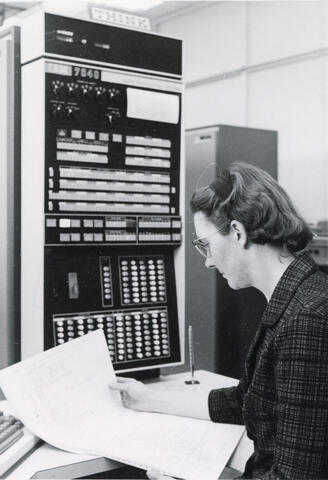
Title and statement of responsibility area
Title proper
Dr. Kathleen H.V. Booth
General material designation
- Graphic material
Parallel title
Other title information
Title statements of responsibility
Title notes
Level of description
Item
Reference code
Edition area
Edition statement
Edition statement of responsibility
Class of material specific details area
Statement of scale (cartographic)
Statement of projection (cartographic)
Statement of coordinates (cartographic)
Statement of scale (architectural)
Issuing jurisdiction and denomination (philatelic)
Dates of creation area
Date(s)
-
1966 (Creation)
Physical description area
Physical description
1 photograph : b&w ; 19 x 12.5 cm
Publisher's series area
Title proper of publisher's series
Parallel titles of publisher's series
Other title information of publisher's series
Statement of responsibility relating to publisher's series
Numbering within publisher's series
Note on publisher's series
Archival description area
Name of creator
Custodial history
Scope and content
Dr. Kathleen H.V. Booth, professor of Mathematics, examines a computer printout of a translation from English to French.
Bio/Historical Note: Kathleen Hylda Valerie Britten Booth, British computer scientist and mathematician, was born 9 July 1922 in Stourbridge, Worcestershire, England. She obtained a BSc in Mathematics in 1944 and a PhD in Applied Mathematics in 1950 from the University of London. Dr. Booth was research fellow and lecturer at Birkbeck College from 1946-1962. She also served as a research scientist at British Rubber Producers' Research Association from 1952-1962.
She travelled to the United States as Andrew Booth's research assistant in 1947 (and were married in 1950). Upon returning to the UK, she co-authored "General Considerations in the Design of an All Purpose Electronic Digital Computer," describing modifications to the original ARC redesign to the ARC2 using a von Neumann architecture. Part of her contribution was the ARC assembly language.[8] She also built and maintained ARC components. Kathleen and Andrew Booth's team at Birkbeck were considered the smallest of the early British computer groups. From 1947 to 1953, they produced three machines: ARC (Automatic Relay Computer), SEC (Simple Electronic Computer), and APE(X)C (All-purpose Electronic (Rayon) Computer). She and Mr. Booth worked on the same team. He built the computers and she programmed them. This was considered a remarkable achievement due to the size of the group and the limited funds at its disposal. Booth regularly published papers concerning her work on the ARC and APE(X)C systems and co-wrote "Automatic Digital Calculators" (1953) which illustrated the 'Planning and Coding' programming style. In 1957. In 1958 she taught a programming course and wrote one of the first books describing how to program APE(X)C computers.
From 1946 to 1962, She and her husband resigned suddenly from Birkbeck College in 1961 after a chair was not conferred on her husband despite his massive contributions; an ICT 1400 computer was donated to the Department of Numerical Automation but was in fact installed in the London School of Hygiene and Tropical Medicine. In 1962, after leaving Birkbeck College the Booth family moved to Canada to where she became a research fellow, lecturer and associate professor at the University of Saskatchewan until 1972. At Lakehead University in Thunder Bay, Ontario, she became professor of Mathematics from 1972 to 1978.[4] Kathleen Booth retired from Lakehead in 1978. Her last current paper was published in 1993 at the age of 71. Titled "Using neural nets to identify marine mammals" it was co-authored by her son, Dr. Ian J.M. Booth. Kathleen Booth died 29 September 2022 at Sooke, British Columbia.
Notes area
Physical condition
Immediate source of acquisition
Arrangement
Language of material
Script of material
Location of originals
Availability of other formats
Restrictions on access
Terms governing use, reproduction, and publication
Photographer: Gibson
Other terms: Copyright: University of Saskatchewan

